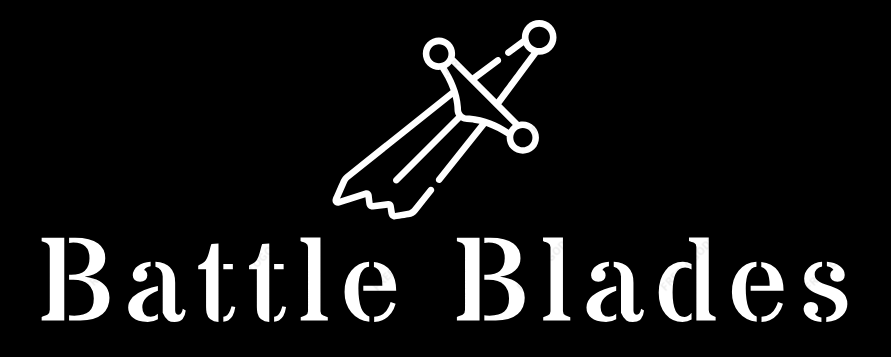Excalibur Sword Origin Story
TLDR: The legend of Excalibur has evolved from its first mention as “Caliburnus” in Geoffrey of Monmouth’s Historia Regum Britanniae, adapting over centuries through language and cultural shifts, with deep Welsh and Celtic influences that add layers of myth and magic, making it a symbol of British history and folklore.
Man, the story of Excalibur is like a journey through time and legend! I’ve always been fascinated by how this iconic sword evolved from a simple mention in an old text to become one of the most recognizable symbols in fantasy literature. It’s wild to think that Geoffrey of Monmouth’s “Historia Regum Britanniae” kicked off this whole epic tale back in the 12th century. The way Excalibur transformed from Caliburnus to the name we know today is a testament to how legends grow and change. I reckon the Welsh and Celtic influences give it that extra mystical flavor that makes it so captivating. And you know what? I think comparing Excalibur’s origin to other mythical swords really shows how special it is. There’s just something about Excalibur that stands out from the crowd, you know? It’s not just a sword; it’s a piece of history, myth, and magic all rolled into one shining blade. I can’t wait to dive deeper into the story and uncover all the twists and turns that made Excalibur the legendary weapon we know today.
Geoffrey of Monmouth’s “Historia Regum Britanniae”
Geoffrey of Monmouth’s “Historia Regum Britanniae” is like the granddaddy of all Arthurian legends, if you ask me. Written around 1136, this Latin text is where so much of what we know about King Arthur and British mythology got its start. I’ve spent countless hours poring over translations, and let me tell you, it’s a wild ride from start to finish!
What really gets me is how Geoffrey blended history, myth, and his own imagination to create this epic tale of British kings. Sure, some folks might call it “pseudohistory,” but I think that misses the point. This work wasn’t just about recording facts; it was about creating a national identity and giving the British people a legendary past to be proud of.
The “Historia” covers a massive span of British history, from the supposed Trojan origins of the Britons all the way up to the Anglo-Saxon invasion. But for me, the real meat of the story is in the Arthurian sections. Geoffrey didn’t just write about Arthur; he practically invented the Arthur we know today. Here’s a quick rundown of some of the major Arthurian elements Geoffrey introduced or popularized:
- Merlin as a prophet and advisor
- Excalibur (though he called it Caliburnus)
- Arthur’s conquest of much of Europe
- The battle against the Romans
- Arthur’s final battle with Mordred
What I find fascinating is how Geoffrey’s work influenced not just literature, but politics and culture for centuries to come. Kings would actually use the “Historia” to justify their claims to the throne! Can you imagine a modern politician citing a fantasy novel as proof of their right to rule? That’s how powerful this text was.
Of course, not everyone was a fan. Even in Geoffrey’s time, some historians called him out for his, let’s say, creative approach to history. But in my opinion, that’s part of what makes the “Historia” so special. It’s not just a dry historical account; it’s a work of imagination that captured the hearts and minds of people for generations.

Evolution from Caliburnus to Excalibur
It’s fascinating how a name can evolve over time, picking up bits and pieces of different cultures along the way. I’ve spent countless hours tracing this linguistic adventure, and let me tell you, it’s a wild ride!
It all starts with Geoffrey of Monmouth’s “Caliburnus” in his Latin text. Now, I reckon Geoffrey was trying to give the sword a bit of Roman flair, you know? But here’s the kicker – that name didn’t stick around for long. As the stories spread and got retold, that Latin name started shape-shifting like crazy.
Here’s a quick rundown of the evolution as I see it:
- Caliburnus (Geoffrey of Monmouth, 12th century)
- Caliburn (Old French versions, 12th-13th centuries)
- Calibor (Middle English texts, 13th-14th centuries)
- Excalibur (Late Middle English and Modern English, 15th century onwards)
What gets me is how each change reflects the language and culture of the time. It’s like the name was adapting to survive, just like any good legend should! I’ve got this theory that the ‘Ex-‘ prefix got tacked on because it sounded more exotic and magical. I mean, “Excalibur” just rolls off the tongue, doesn’t it?
But here’s the real kicker – while all this was happening in English and French, the Welsh were still calling it “Caledfwlch.” Talk about staying power! It makes you wonder how things might’ve been different if the Welsh version had caught on instead.
I’ve put together a little comparison table to show how the name changed over time:
| Time Period | Language | Name |
| 12th century | Latin | Caliburnus |
| 12th-13th centuries | Old French | Caliburn |
| 13th-14th centuries | Middle English | Calibor |
| 15th century onwards | Late Middle English/Modern English | Excalibur |
| Throughout | Welsh | Caledfwlch |
In my opinion, this evolution isn’t just about a name-changing. It’s about how stories adapt and grow as they move between cultures. Each version of the name adds a new layer to the legend, making Excalibur not just a sword, but a symbol of how myths evolve.
Welsh and Celtic Influences
The Welsh and Celtic influences on Excalibur’s story are like hidden gems in the Arthurian legend. I’ve spent ages digging into these connections, and let me tell you, it’s like uncovering a secret history that adds so much depth to the tale we all know and love.
First off, we’ve got to talk about the Welsh name for Excalibur: Caledfwlch. Now, that’s a mouthful, isn’t it? But man, does it pack a punch! It roughly translates to “hard cleft” or “hard lightning,” which I reckon is way cooler than just calling it a fancy sword. It’s like the Welsh knew this wasn’t just any old blade – it was a force of nature.
Then there’s the whole Lady of the Lake business. I’ve got this theory that she’s actually rooted in Celtic water goddess traditions. Think about it – mysterious magical ladies hanging out in lakes and handing out swords? That’s got Celtic written all over it! It’s like the old myths and the new legends are dancing together, creating something totally unique.
Here’s a quick rundown of some Welsh and Celtic elements I’ve noticed in the Excalibur story:
- Caledfwlch – The Welsh name for Excalibur
- Myrddin – The Welsh origin of Merlin’s name
- Avalon – Possibly derived from the Welsh word for apple, “afal”
- The Lady of the Lake – Potential connections to Celtic water deities
- The magical properties of the sword – Reminiscent of Celtic magical weapons
What really gets me is how these influences add layers of meaning to the story. It’s not just about a king and his magic sword anymore – it’s about the blending of cultures, the preservation of ancient beliefs, and the power of storytelling to keep traditions alive.
I’ve put together a little comparison table to show how some Arthurian elements line up with their Welsh counterparts:
| Arthurian Element | Welsh/Celtic Counterpart |
| Excalibur | Caledfwlch |
| Merlin | Myrddin |
| Arthur | Arth (bear) |
| Guinevere | Gwenhwyfar |
| Camelot | Camlann (site of Arthur’s last battle) |
In my opinion, these Welsh and Celtic roots give the Excalibur legend a kind of authenticity that you just can’t fake. It’s like the story is growing right out of the land itself, you know? And I think that’s why it’s stuck around for so long – it’s not just a made-up tale, but something that’s deeply connected to the history and culture of Britain.
Where Can I Get My Own Excalibur Replica?
If you’re looking to own your very own Excalibur sword replica, you’ll find a variety of options online, ranging from affordable decorative pieces to high-quality, detailed replicas perfect for collectors or enthusiasts. Many specialty retailers and online marketplaces offer these swords, so you can choose one that fits your budget and display preferences. Whether you’re a fan of Arthurian legend or just love collecting fantasy weapons, there’s a perfect Excalibur replica out there for you.
Medieval Collectibles
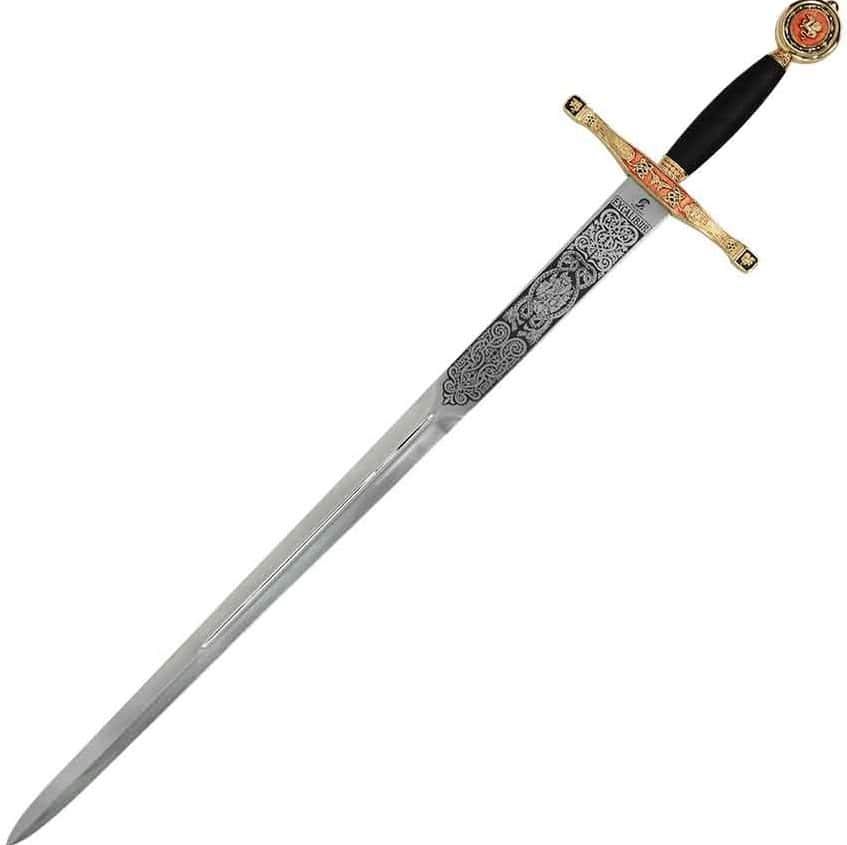
Buying-A-Sword
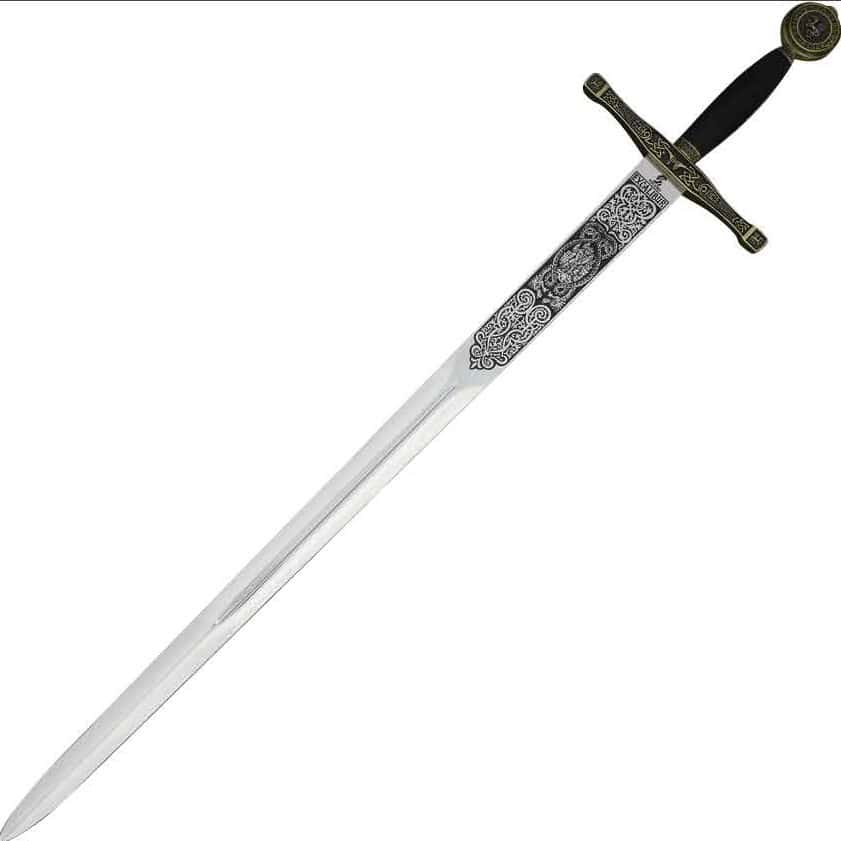
Swords Kingdom
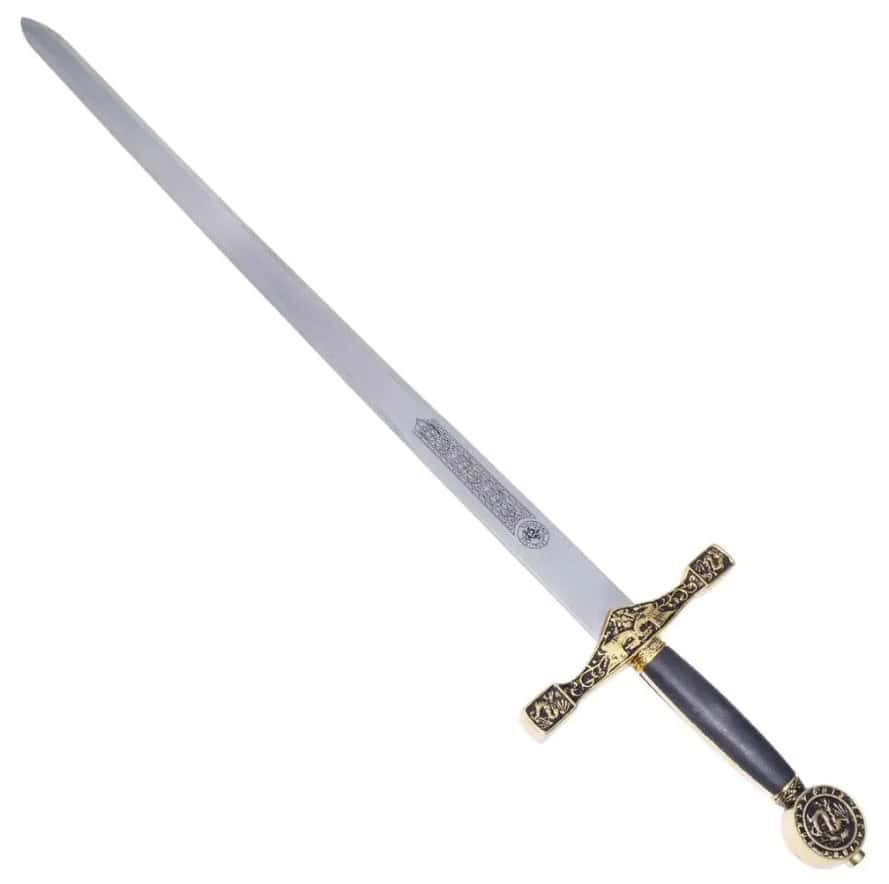
Collector’s Armoury
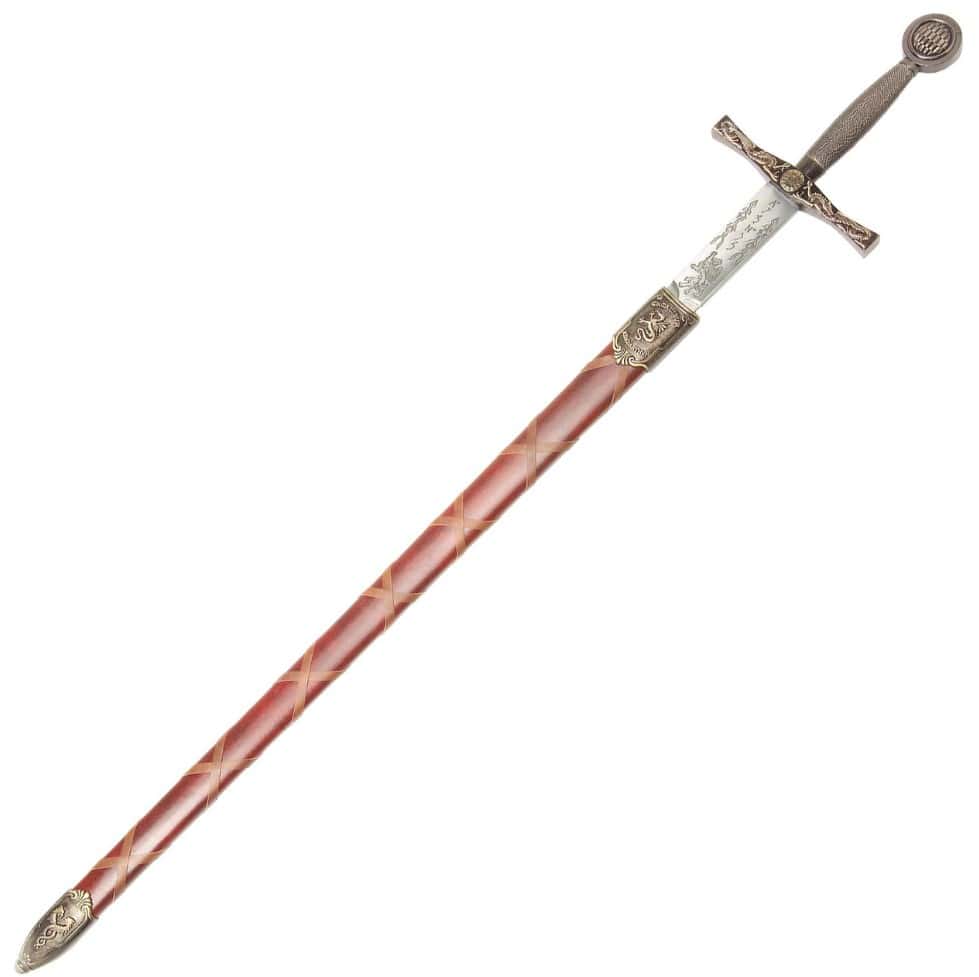
True Swords

Mantiquities352
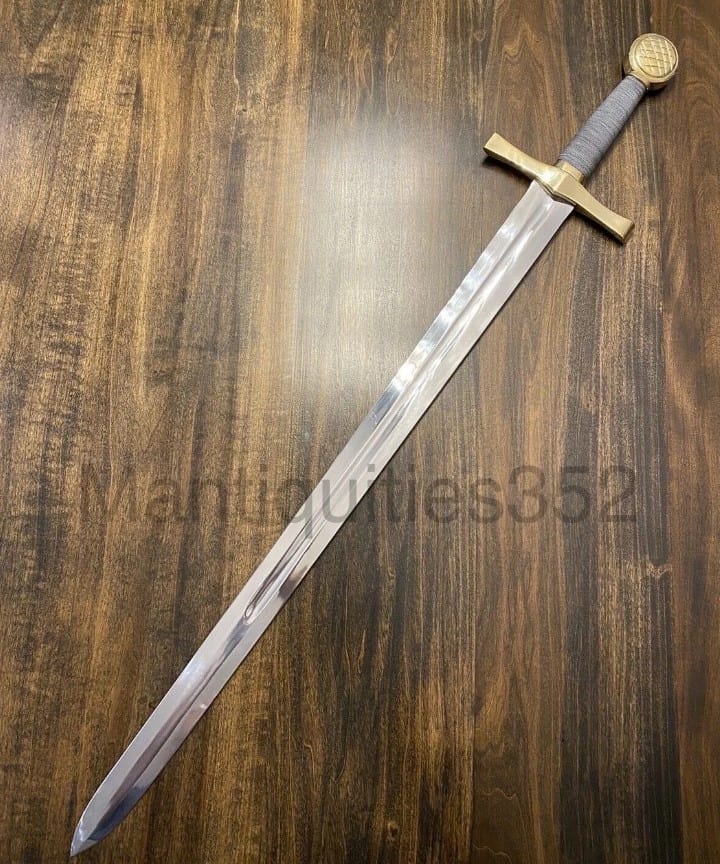
BiforstBargains
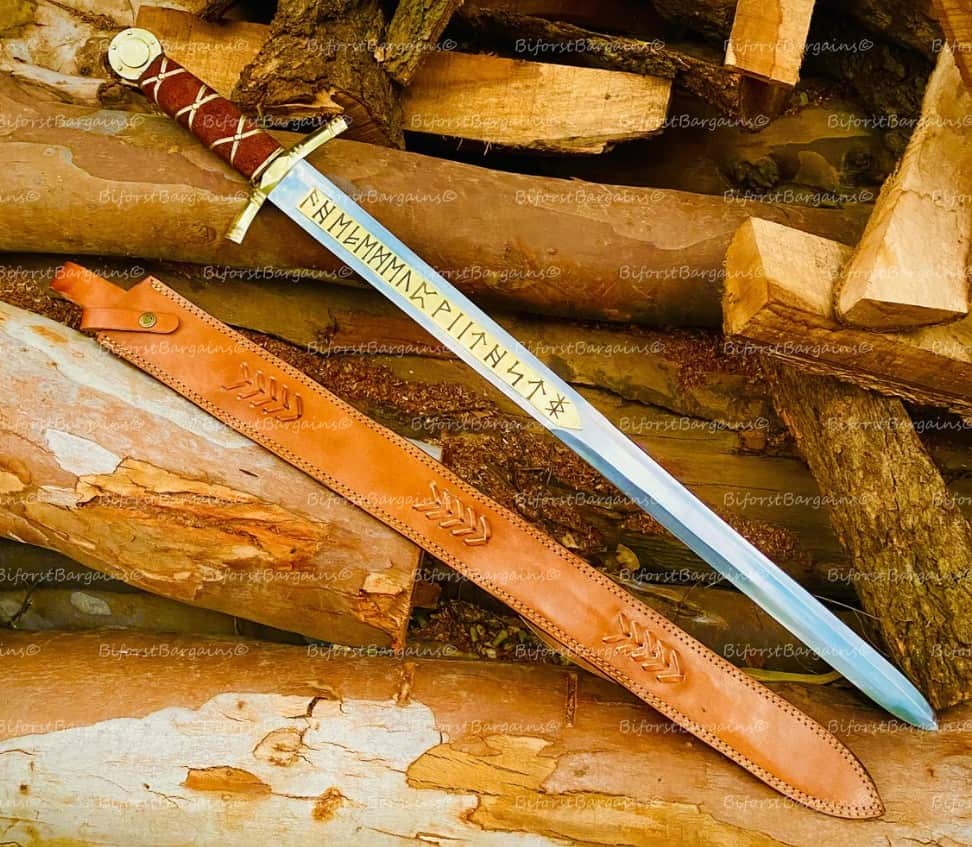
Final Thoughts
Diving into the history and evolution of Excalibur has been like uncovering layers of a story that just keeps getting richer. I’ve always been fascinated by how this legendary sword transformed from Caliburnus to Excalibur, weaving its way through different languages and cultures. Geoffrey of Monmouth’s “Historia” laid the foundation, but it’s the Welsh and Celtic influences that really add that extra mystical depth to the legend. I think what makes Excalibur stand out from other mythical weapons is how it’s not just a symbol of power, but a connection to the very roots of British mythology. Each retelling, each name change, adds a new layer of meaning, making Excalibur not just a sword, but a living piece of history. For me, the blend of history, myth, and imagination in this tale is what keeps it endlessly fascinating, much like the most iconic weapons in fantasy literature that continue to capture our imaginations today.
